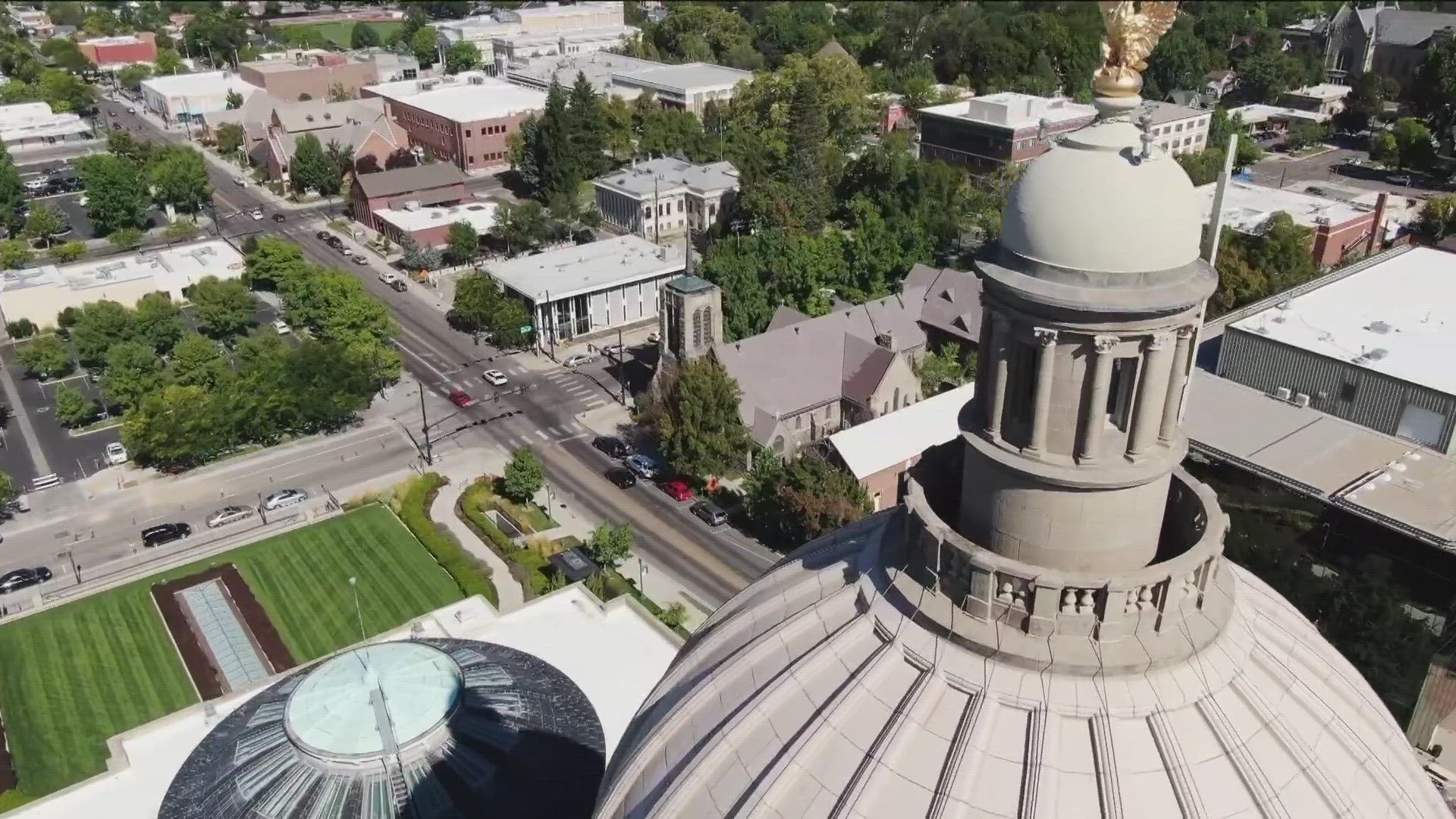BOISE, Idaho — While lawmakers are in limbo to kick off the week, the quiet capitol still has lots of work going. Just check out the Idaho Secretary of State’s Office.
“Really interesting being in this new role. A key part of the secretary of state's office is being the secretary to the state. And so all the official actions of the governor, all the official actions of the legislature are come here. We're the record keeper keeping track of all of that,” said Secretary of State Phil McGrane, working through his first year in office.
Alongside his team, work is done here to officially get laws on the books after lawmakers pass it and Governor Little signs off.
“Once the governor signs it, that's when the law becomes official. And it's for our job from that point on to take it and make sure that we can notify the world, get the session laws out, make sure that all the lawyers, judges, everybody else know about what the changes to expect,” McGrane said.
The Governor’s staff works closely with the Secretary of State team, that includes hand delivering fresh laws. Secretary of State team members like Lisa Mason make sure everything is accurate and recorded.
“Once I get these, receive these laws and work my way through them, I'll transfer information onto the back of bills and I'll assign it a chapter number every year. These will be published after the legislature adjourns, and they're all the laws that were passed for the year,” Mason said.
Even in the age of incredible technology, Secretary McGrane and his team are focused on the pen to paper, and then digital recording as a second step. Each detail is carefully confirmed for accuracy.
Hardcopies of the session paperwork are kept in special portfolio. They are also officially added in print to Idaho Code. Code books are newly printed every few years for practical purposes, but a special insert is added into physical session law books quickly to hold as a place holder.
“We just had a meeting last week with the Idaho Code Commission, which is the group that oversees the dissemination of all of these new laws and the information. And so it's our job to both digitize that. We're also the enforcer to make sure the timetables, in terms of whether a signature was put on there timely or not, or if a bill becomes law without the governor's signature. We process all that information, but make sure that the legislature did all it was supposed to do, that the governor did what he was supposed to do, and then make sure to get the information out to the public,” McGrane said.
As times change and evolve, the core principle remains: lawmakers make laws, and someone needs to make sure those are tracked, maintained, and published.
“There is still a lot of history to this building that we are processing laws today, just as we were when we became a state in 1890. I think that's one of the interesting aspects and so many people, including the new legislators who have come on board, are just learning that process and each of the steps along the way. And it is quite a journey that a bill has to take from its initial idea and inception and to make it through that entire process,” McGrane said. “We are the ones keeping track of it. We're the ones validating, making sure that it is the governor's signature and that everything is official by the time it takes full effect.”
Join 'The 208' conversation:
- Text us at (208) 321-5614
- E-mail us at the208@ktvb.com
- Join our The 208 Facebook group: https://www.facebook.com/groups/the208KTVB/
- Follow us on Twitter: @the208KTVB or tweet #the208 and #SoIdaho
- Follow us on Instagram: @the208KTVB
- Bookmark our landing page: /the-208
- Still reading this list? We're on YouTube, too:

